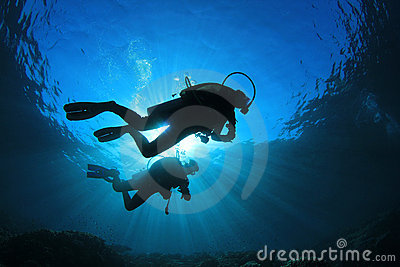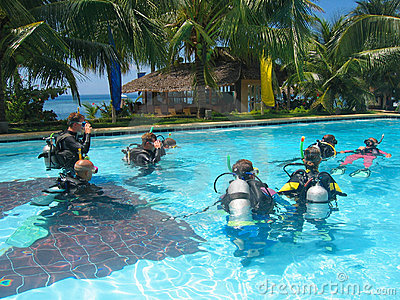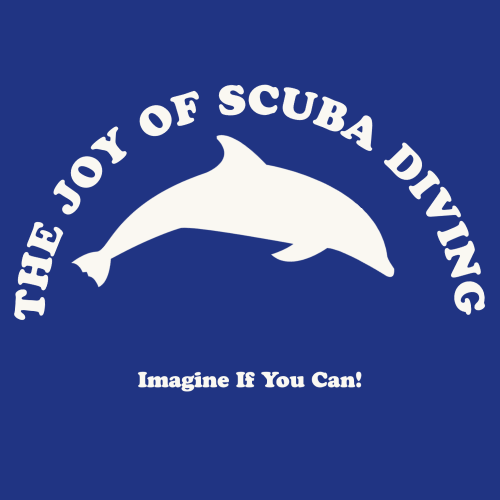You’ve been doing some research and wondering do I need to be certified to scuba dive?
To my knowledge, there is no legal law that states you must be certified do this!
This sounds too good, right? You’re excited to hear about this because you don’t have to pay for courses. You have never done any scuba diving and you can learn from a friend who is a certified diver or perhaps you dive but have never been certified.
There is a slight challenge, however, ‘reputable’ dive shops will not do tank fills, nor will they rent dive gear to you without a dive card (C-card) showing you have been appropriately trained by a certified professional dive instructor.
These dive shops don’t want liabilities and they must follow the standards of their scuba diver training organization (i.e. PADI for example) they associate with. They don’t want the risk of losing their affiliation with them.
Plan on scuba diving without getting certified? Some things you should know!
Getting Certified Means Maximizing SAFETY As Best As Humanly Possible! You don’t know what you don’t know!!
Doing your due diligence by getting certified to me means, taking precautions to prevent harm to yourself and to others and to property (coral).
What can you do then?
First, a few things I want to go over.
There are 4 main scuba diver training organizations, members of the WRSTC (World Recreational Scuba Training Council), who are recognized internationally. They are solely dedicated to the safety of the public regarding recreational diving. They set the minimum training practices and procedures for the recreational diving agencies below:
- PADI (Professional Association of Diving Instructors)
- SDI (Scuba Diving International)
- PDIC International (The Professional Diving Instructors Corporation)
- SSI (Scuba Schools International)
These organizations work together with their affiliate members (dive shops and instructors = reputable).
What does a diving certification (C-card) really mean?
This means the cardholder (certified diver) has completed a training that was required by the reputable dive shop/instructor who issued the card. It shows the level of training which represents their knowledge and ability in underwater training. This card proves the cardholder’s qualifications to scuba dive based on the level of training received.

Non-certified divers
There are definitely people who scuba dive and are not certified and some are very competent divers. Some have been diving for years before certifications came in place.
They might have received their training thru the military or science research.
In either case, the reputable dive shops will still ask for some sort of document proving you have been trained. This still presents a challenge.
A thought for you!
You are a diver but not certified? You decide to teach your friend how to scuba dive. Do you honestly want that kind of responsibility? Definitely not worth taking chances… if something were to happen to your friend, how would his family and friends react to you? And then, there is the possibility of a civil suit… Please, convince your friend to take the course and get the recognitions of being a trained recreational scuba diver!
Here are some suggestions!
1. Connect with a scuba diver training organization who are members of the WRSTC (World Recreational Scuba Training Council), i.e. PADI, SSI, etc.
2. You can go online with any of them (except PDIC) and sign-up for their e-Learning to start a course immediately to become a certified recreational scuba diver. For example, with PADI, they have their PADI Open Water course and rather than spend your holiday time learning the knowledge portion of the course, you can do this at home. The best part is you can do this at your own pace. You only need to have a computer and the internet.
When you’re done the e-Learning, you must still do the 4 open water dives. For this, you find an affiliate dive shop or resort thru the organization in the location you want to complete and receive your certification.
Guess what, your certification is good forever!! Your investment is well worth your time and the dollars .. Isn’t this better than to show up at a dive shop and be denied dive rentals?
Note: Yes, I mentioned there is no expiration date of being a certified recreational diver, however, If you are a certified diver or a non-certified diver who has not been diving for at least 2 years, I would highly recommend going for a quick refresher with a dive instructor.
The reputable dive shops will advise going for a refresher anyway just to get you familiar again with your dive gear or the shop’s gear and procedures. It also gives them the feeling of comfort and peace, knowing you have taken this step. It usually takes about a half hour or so in confined water .. well worth it!
2. If you have never done any scuba diving and somewhat apprehensive, take an introductory course, which in PADI’s world, is called the Discover Scuba. It would be a perfect solution for you! A wonderful opportunity for you to explore the underwater and help you decide if you want to venture further!
It’s an excellent course to take for someone new and you will learn everything you need to know like familiarity with your dive gear, buoyancy, safety procedures, etc. during your training in confined water or pool.
- You will also undergo a brief classroom and do 1 open water dive under the direct supervision of your Instructor who is with you at all times.
- The course includes tank fill and all gear rental. You will not get a certification!
- This is not an e-Learning course. You can take this immediately at the dive shop you connect with.
- Try it out and see if you like it. If you like it, then go onto the e-Learning of the actual open water certification.
OR, just dive into the e-Learning and take the actual open water certification course.
3. If you are a non-certified diver and have no intentions of diving often. Then PADI’s Discover Scuba or some sort of introductory course would be good. By doing that, you won’t be denied your dives.
4. As I said, you don’t know what you don’t know. Technologies change all the time. Diving, on the whole, is relatively quite safe. Doing your own due diligence is important no matter what you do. New procedures, new gear… it’s important to be familiar with the dive gear you are renting.
Having the proper dive communications in place underwater with your dive buddy is extremely important because you can’t hear what is being said underwater. Know and be prepared for any situation that may arise! It just makes sense right? That’s why get certified in scuba diving is important!
Honestly, would you cave dive with no procedural knowledge and hands on experience?? I hope not!
My final thought!
Think of it this way, If you want to drive a vehicle, you must first learn how to drive and pass the driver’s road test with all the rules and regulations to keep you and others safe.
Learning to scuba dive is the same. You are denying yourself the knowledge of scuba safety as well as the true pleasure of education and experience that could open up a whole new world without going thru the back door.
Now that you know the proper procedures by becoming a certified diver, you might just venture on and get into additional courses.
Enlighten your joy of scuba diving even more and never have to worry about being denied tanks and gear.
Go for the long term benefit of becoming a certified scuba diver!
If you have any questions or comments, I really would like to hear from you. If you want to get certified or get more information on certification dive courses or dive shops and locations, please put them in the comment below.
